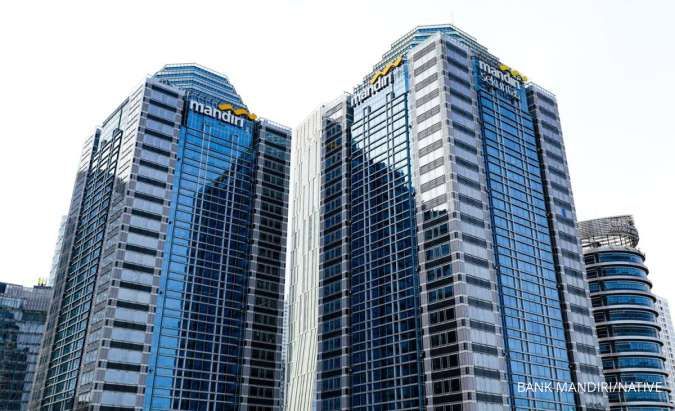JAKARTA. Mounting pressure on state finances following the failure to secure lawmakers’ approval to raise subsidized fuel prices on April 1 may lead to the government proposing a second round of budget revisions, says Finance Minister Agus Martowardojo.“As long as we do not raise subsidized fuel prices, we have to disburse between Rp 4 trillion (US$436 million) and Rp 5 trillion of fuel subsidies monthly,” Agus told reporters during a joint press conference with Coordinating Economic Minister Hatta Rajasa on Monday.To cope with the increasing fuel subsidies, Agus said that the government would push to improve energy efficiency by encouraging the use of gas in private vehicles and ensuring limited use of diesel in power generation.“We can always propose another revision to the amended state budget. We did that in 2005,” he added, referring to a situation in that year when the government was forced to make two revisions to the state budget to allow for welfare programs to compensate for fuel subsidy cuts.Agus said the failure to raise prices on schedule had widened the price gap between subsidized and non-subsidized fuels. On April 1, state oil and gas producer PT Pertamina raised the price of non-subsidized fuels to Rp 10,200 and Rp 10,350 a liter for Pertamax and Pertamax Plus respectively.With subsidized fuels remaining at Rp 4,500 a liter, more consumers would likely shift from Pertamax to the Premium subsidized gasoline. “If more and more Pertamax users shift to Premium, then we will definitely exceed our subsidized fuel allocation, which now stands at 40 million kiloliters in the state budget. I believe that without a Premium price hike, subsidized fuel usage could eventually reach 47 million kiloliters,” he said.Based on the assumption of 40 kiloliters of annual oil consumption, the House of Representatives approved Rp 225.35 trillion in energy subsidies, below the government’s initial demand of Rp 230 trillion. The demand was made on the assumption that subsidized fuel prices would be raised by Rp 1,500 to Rp 6,000 a liter for both Premium and diesel.The House allowed the government to make price adjustments if the Indonesian Crude Price (ICP) exceeds a budget assumption of $105 a barrel by 15 percent, or to $120.75 a barrel, over a six-month period. According to data from the Energy and Mineral Resources Ministry, the ICP has been above the benchmark deviation price since February.Bank Danamon chief economist Anton Hermanto Gunawan said that crude oil prices in the international market would probably increase further and that fuel price adjustments should be made in the third quarter of this year. “If the government, in the third quarter of 2012 can raise the fuel price, the government budget will still be on track,” he said.Ratings agency Standard & Poor’s (S&P) said it maintained a positive outlook for Indonesia after the House’s decision. “We maintain a positive outlook on Indonesia’s sovereign rating, which reflects the likelihood of an upgrade if inflation is contained and balance sheet improvements continue,” S&P said as quoted by Reuters.In recent months, Moody’s and Fitch have raised the status of Indonesia’s sovereign credit rating to investment grade.Economists and analysts fear that the government’s failure to raise subsidized fuel prices might hinder the country’s infrastructure development. Hatta said that there was nothing to worry about regarding infrastructure development.“Infrastructure acceleration does not entirely depend on the state budget. Partnership schemes with the private sector are viable options to fund infrastructure,” he said. (Hans David Tampubolon/ The Jakarta Post)
Budget may face more revisions
JAKARTA. Mounting pressure on state finances following the failure to secure lawmakers’ approval to raise subsidized fuel prices on April 1 may lead to the government proposing a second round of budget revisions, says Finance Minister Agus Martowardojo.“As long as we do not raise subsidized fuel prices, we have to disburse between Rp 4 trillion (US$436 million) and Rp 5 trillion of fuel subsidies monthly,” Agus told reporters during a joint press conference with Coordinating Economic Minister Hatta Rajasa on Monday.To cope with the increasing fuel subsidies, Agus said that the government would push to improve energy efficiency by encouraging the use of gas in private vehicles and ensuring limited use of diesel in power generation.“We can always propose another revision to the amended state budget. We did that in 2005,” he added, referring to a situation in that year when the government was forced to make two revisions to the state budget to allow for welfare programs to compensate for fuel subsidy cuts.Agus said the failure to raise prices on schedule had widened the price gap between subsidized and non-subsidized fuels. On April 1, state oil and gas producer PT Pertamina raised the price of non-subsidized fuels to Rp 10,200 and Rp 10,350 a liter for Pertamax and Pertamax Plus respectively.With subsidized fuels remaining at Rp 4,500 a liter, more consumers would likely shift from Pertamax to the Premium subsidized gasoline. “If more and more Pertamax users shift to Premium, then we will definitely exceed our subsidized fuel allocation, which now stands at 40 million kiloliters in the state budget. I believe that without a Premium price hike, subsidized fuel usage could eventually reach 47 million kiloliters,” he said.Based on the assumption of 40 kiloliters of annual oil consumption, the House of Representatives approved Rp 225.35 trillion in energy subsidies, below the government’s initial demand of Rp 230 trillion. The demand was made on the assumption that subsidized fuel prices would be raised by Rp 1,500 to Rp 6,000 a liter for both Premium and diesel.The House allowed the government to make price adjustments if the Indonesian Crude Price (ICP) exceeds a budget assumption of $105 a barrel by 15 percent, or to $120.75 a barrel, over a six-month period. According to data from the Energy and Mineral Resources Ministry, the ICP has been above the benchmark deviation price since February.Bank Danamon chief economist Anton Hermanto Gunawan said that crude oil prices in the international market would probably increase further and that fuel price adjustments should be made in the third quarter of this year. “If the government, in the third quarter of 2012 can raise the fuel price, the government budget will still be on track,” he said.Ratings agency Standard & Poor’s (S&P) said it maintained a positive outlook for Indonesia after the House’s decision. “We maintain a positive outlook on Indonesia’s sovereign rating, which reflects the likelihood of an upgrade if inflation is contained and balance sheet improvements continue,” S&P said as quoted by Reuters.In recent months, Moody’s and Fitch have raised the status of Indonesia’s sovereign credit rating to investment grade.Economists and analysts fear that the government’s failure to raise subsidized fuel prices might hinder the country’s infrastructure development. Hatta said that there was nothing to worry about regarding infrastructure development.“Infrastructure acceleration does not entirely depend on the state budget. Partnership schemes with the private sector are viable options to fund infrastructure,” he said. (Hans David Tampubolon/ The Jakarta Post)

